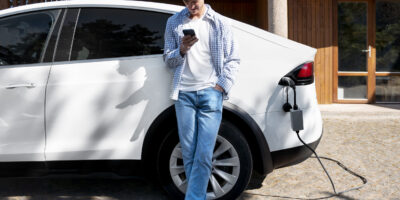Are EVs worth a buy now?

With a continuous rise in fuel prices, electric vehicles may often seem like a plausible and reasonable option to switch to. But are they a worthy substitute for fuel vehicles and a convenient alternative to change the course of the automobile industry in India at this very moment? Or are there phantom expenses and underlying issues which might make the purchase a liability instead of an asset? The new users, planning to switch to electric vehicles from petrol or diesel-operated vehicles, often wonder if electric vehicles are worth switching to. Should they buy electric vehicles? Shall electric vehicles be able to meet their range demands? Whether they shall be able to get their value worth? If they shall buy an electric car or just keep to a more advanced version of the fuelled ones? If electric vehicles have any demerits which may weigh heavier than fuelled vehicles?
The running costs of electric vehicles are relatively cheaper, and they are easier to operate and more ecologically suitable than their fuel-powered alternatives.
While EVs are a healthy and more eco-friendly substitute for traditional vehicles, the heavy maintenance and repairs might pose a drawback for the EV industry in India. The battery being the main component of the automobile is a recurring cost, to be replaced at every due interval because of its limited lifespan. The cost of the battery itself is 40-50% of the total cost of vehicle production. The materials used to make batteries are sparsely available making them even more expensive and difficult to obtain. Lack of resources and raw materials needed to make the vehicle forces the need to import them, thus elevating the costs. All these factors make EVs as expensive as the general fuel-powered vehicles if not more. This beats the purpose of switching to cost-efficient vehicles to save money. The heavy imports also impact the national financial structure.
The kind of infrastructure needed to support the uninterrupted working of EVs is yet to be fully introduced in the country. The batteries have a limited time span and need to be recharged again and again, reducing the range of travel. There are no proper outlets or any energy means publically available to cater to the electric vehicles running on roads unlike fuel-powered vehicles, which have refueling stations every few kilometers. The already available infrastructure is not only limited in potential but also very expensive, defeating the purpose of switching to electric vehicles. The lack of proper and sufficient infrastructure for charging makes the buyers and users experience range anxiety. They fear that due to the unavailability of the network of charging facilities, the vehicles would not be able to reach their destination because the charge would not last.
Grant Thornton Bharat-FICCI poll shows that India needs 400,000 charging stations by 2026 to cater to two million electric vehicles on the road. To curb this range anxiety, it is necessary to assure people of reaching their destination by developing the infrastructure so needed.
Not only that but the depreciation rate of electric vehicles is relatively higher than fuel-powered vehicles. Due to this, the resale value of the EVs goes down, making the purchase seem unworthy. The higher the battery range, the higher the resale value, because the entire working of the system depends on the range and power of the battery. Electric vehicles with more improved battery technology are much preferred in the case of resale since they are expected to have a better lifespan. The rapidly evolving and developing technology of EVs makes the price of the old one go down for this very reason. Buyers interested in buying EVs prefer new devices rather than the old ones, due to expectations of better performance and increased range. They want to expect the same kind of performance from EVs as they do from fuel-powered vehicles. Lack of this might lead to disappointment and backlash to the electric automotive industry.
The lack of technology and lack of skilled workforce needed to upscale the Indian automobile industry to make it more suitable for electric vehicles also becomes a great challenge for those debating in favor of electric vehicles.
Conclusion:
India would take a few years before it is capable of providing proper and enough means and infrastructure to make EVs the name and product of every household. Keeping in view the rapid increase in pollution and population, electric vehicles will surely be a way to go. But before stepping into the EV industry with full force, India needs to maintain and curate its basic structure to support electric vehicles. While fuel-powered vehicles have matured over many years, electric vehicles are an infant technology, yet to mature enough to stand up to the expectations of the users. The next few years would play to be a game changer for making or breaking this industry in India. The Indian government is ambitious to make 30 percent of the total sales of vehicles electric by 2030 and is offering incentives worth billions to automobile companies to manufacture clean vehicles. But lack of proper infrastructure and not making them pocket-friendly can gradually lead to a great fall in the demand for electric vehicles.


